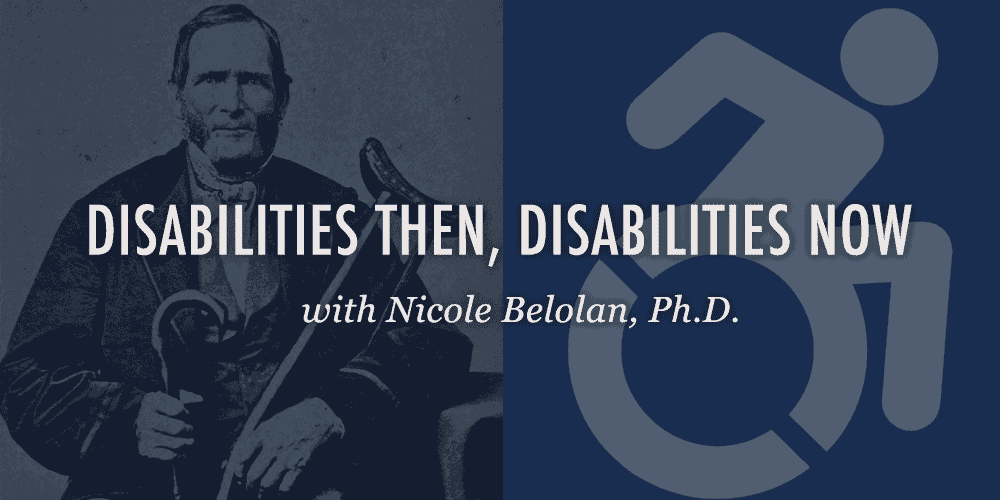On July 26, 2022, our nation celebrated the thirty-second anniversary of the Americans with Disabilities Act (ADA), a landmark civil rights law that, for the first time, protected the rights of people with disabilities and guaranteed equity. Dr. Nicole Belolan, Public Historian in Residence at the Mid-Atlantic Regional Center for the Humanities (MARCH) here at Rutgers–Camden, is a historian of the material culture of disability in early America, well before the passing of the ADA. Dr. Belolan, who earned her doctorate in the History of American Civilization from the University of Delaware, studies objects such as crutches, artificial limbs, adult cradles, and easy chairs from the 18th and 19th centuries.
Recently, Dr. Belolan was invited to be a speaker for the New Jersey Council for the Humanities Democracy Conversation Project. The project aims to “explore how our communities define, understand, and participate in American democracy.” Dr. Belolan’s talk, “Disabilities Then, Disabilities Now,” discusses what is was like to be disabled in the 18th and 19th centuries through an examination of original artifacts. The goal of the session is to “increase awareness of disability history and disability justice and activism in America today.” Earlier in July, Dr. Belolan presented her talk with Art House Productions, a Jersey City-based visual and performing arts collective. In the fall, she will present “Disabilities Then, Disabilities Now” at the Cherry Hill Public Library (October 24) and at the Moorestown Public Library (November 2). These sessions require registration, but are free and open to all.
Dr. Belolan aims to tailor her “Disabilities Then, Disabilities Now” lecture to each specific audience, but the overarching theme is the same: for people to “learn about the visibility and integration of disabled people in early America (before 1840)… and to use that knowledge to advocate for access and inclusion today for disabled people.” She poses the question, “what might access and inclusion look like for [your] community?” Together, she and her audience learn from one another over the course of the session. “Disability history has taught me a lot about history itself but also how to approach all my work,” she says.
Not only does Dr. Belolan serve as the Public Historian in Residence at MARCH, she is also co-editor of The Public Historian, digital media editor of the National Council on Public History’s blog History@Work, and directs the Continuing Education Program in Historic Preservation, which offers one-day workshop and ten-week courses on topics such as Cleaning Historic Interiors on a Budget” and “Introduction to Historic Preservation.” Accordingly, her days are never the same. Regardless of the task, whether it be “editing a museum review, designing a new historic preservation workshop, or serving on an advisory panel related to some local or state history initiative, [it] is informed by sustainable, accessible, and inclusive philosophies about work and history.” Dr. Belolan says “Doing history is for everyone,” and part of her mission is to ensure that history is accessible for all.
Written by Julie Roncinske

